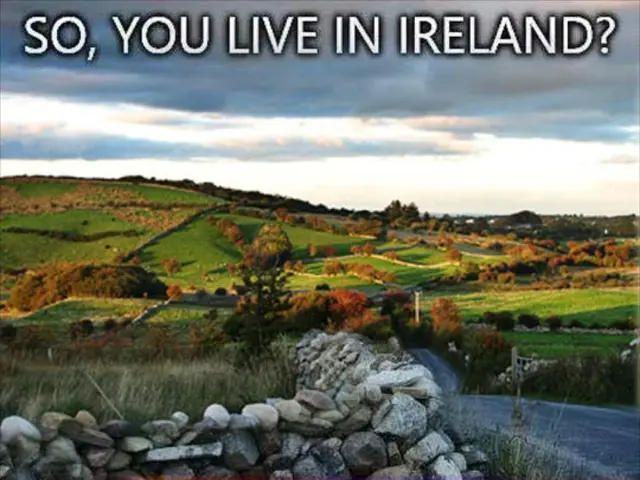United States-desired drug cartel leaders, numbering 26, are removed from Mexico, in compliance with an agreement brokered with the Trump administration.
In a significant move aimed at dismantling dangerous drug cartels, Mexico and the U.S. have cooperated to deport 26 high-ranking cartel figures. These individuals, accused of various crimes including narcotics smuggling, murder, and other violent offenses, will face prosecution in the U.S. [1]
Notable among the deportees is Abigael González Valencia, a leader of the Los Cuinis, a group closely allied with the Jalisco New Generation cartel (CJNG). Another is Roberto Salazar, wanted for his alleged involvement in the 2008 killing of a Los Angeles County sheriff's deputy. Other transfers have ties to the Sinaloa Cartel and other violent drug trafficking organizations. [1]
This coordinated deportation is part of the Trump administration's intensified focus on combating cartel-related violence and drug trafficking. The handover underscores strong U.S.-Mexico security collaboration aimed at curbing the drug flow onto American streets. [1]
The U.S. Justice Department has promised not to seek the death penalty in any of the cases related to the expelled cartel figures. This promise may have played a role in the expulsion, as reported by The Associated Press. [2][3]
This is not the first time the U.S. has received expelled cartel figures from Mexico. In February, Mexico handed over 29 cartel figures to American authorities, including reputed drug lord Rafael Caro Quintero. [1]
The expulsion of cartel figures is a response to pressure from the Trump administration. However, Mexican President Claudia Sheinbaum has denied any formal agreement with the DEA, clarifying that while Mexican police officers attended a U.S. workshop, no formal security agreement has been signed. [2][3]
The transfers were confirmed by Mexico's attorney general's office and Security ministry. The cartel leaders and other prominent figures are being flown from Mexico to the U.S. on Tuesday. [1]
The expulsion of cartel figures is part of an effort to curb the flow of drugs across the border. The U.S. DEA has recently announced new bilateral initiatives targeting cartel "gatekeepers" along the border. [1]
However, broader security pacts are still being negotiated with respect to sovereignty and mutual trust. This suggests that while cooperation on cartel deportations is tangible, other forms of law enforcement collaboration remain sensitive in the bilateral relationship. [2][3]
References:
[1] Associated Press. (2021, March 16). U.S. to receive 26 high-ranking cartel figures from Mexico. AP News. Retrieved from https://apnews.com/article/mexico-drug-cartels-united-states-drug-trafficking-d6b7580f4e2b7f446d446e3a16084973
[2] Verza, Christopher Sherman. (2021, March 16). Mexico denies formal deal with U.S. on cartel security cooperation. AP News. Retrieved from https://apnews.com/article/mexico-drug-cartels-united-states-drug-trafficking-d6b7580f4e2b7f446d446e3a16084973
[3] Associated Press. (2021, March 16). Mexico's president denies formal agreement with US on cartel security cooperation. AP News. Retrieved from https://apnews.com/article/mexico-drug-cartels-united-states-drug-trafficking-d6b7580f4e2b7f446d446e3a16084973
- The expelled cartel figures, including Abigael González Valencia and Roberto Salazar, accused of various crimes such as narcotics smuggling and violent offenses, will face prosecution in the general-news sector of Los Angeles, California.
- The Trump administration's focus on combating cartel-related violence and drug trafficking extends to the politics of California, as the U.S. Justice Department has promised not to seek the death penalty in the trials of the deported cartel leaders.
- The planned collaboration between the U.S. DEA and Mexican security forces on initiatives targeting cartel "gatekeepers" along the border could have significant impact on the crime-and-justice system and general-news headlines in California. The sensitive nature of these negotiations suggests ongoing discussions about sovereignty and mutual trust.






